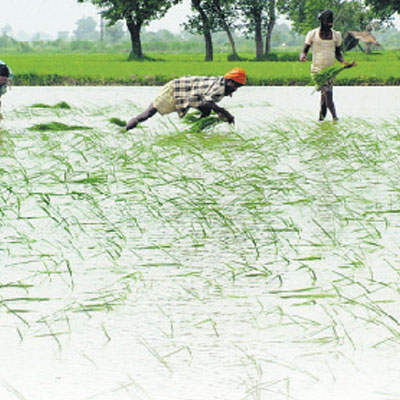About 65% of India's population are dependent on agriculture which in turn contributes 16-18% to the GDP growth. Adverse rainfall is thus seen hitting rural spends and hence consumption levels.
Bankers feel the time is too early for Reserve Bank of India (RBI) to call for a rate hike.
They said a sharp rise in food inflation and a drop in growth rates could put RBI in a quandary once again. Any hike in rates could be detrimental to growth and employment levels unless inflation soars to double digits again, bankers said.
``If monsoons are below average there will certainly be a drop in agriculture production, pressure on food subsidies and inflation," said K Harihar, treasury head at FirstRand.
Another banker said food inflation may not be an immediate concern as India has sufficient food-grain stock owing to satisfactory monsoon in 2013. Food grain production in FY13 was lower from the earlier year's 259.30 million tons at 255.4 million tons. However, in FY14, it rose to 263 million tons, according to the statistics available with the agriculture ministry.
One economist said GDP of 4.9% during 2013-14 was largely on account of a good monsoon that led to a marked improvement in agriculture produce. "In fact agro sector could witness a de-growth due to the higher base effect we are now venturing into," he added.
The current year's monsoon forecast at 96% ± 5% of long period model average (LPMA), is not totally governed by El-Nino – changes in weather conditions that leads to droughts, floods, and drop in crop yields – as there were other parameters based on which the monsoon has been categorised normal to below normal, said an IMD official.
``We would wait and see the intensity of El Nino on India and come out with monthly updates," he said on condition of anonymity.
El Nino–Southern Oscillation (ENSO), an index that helps seasonal operational forecasts for rainfall during the southwest monsoon season, has been neutral in the equatorial Pacific but there has been a rise in temperatures that could have an effect on Indian monsoon, he added.

No comments:
Post a Comment